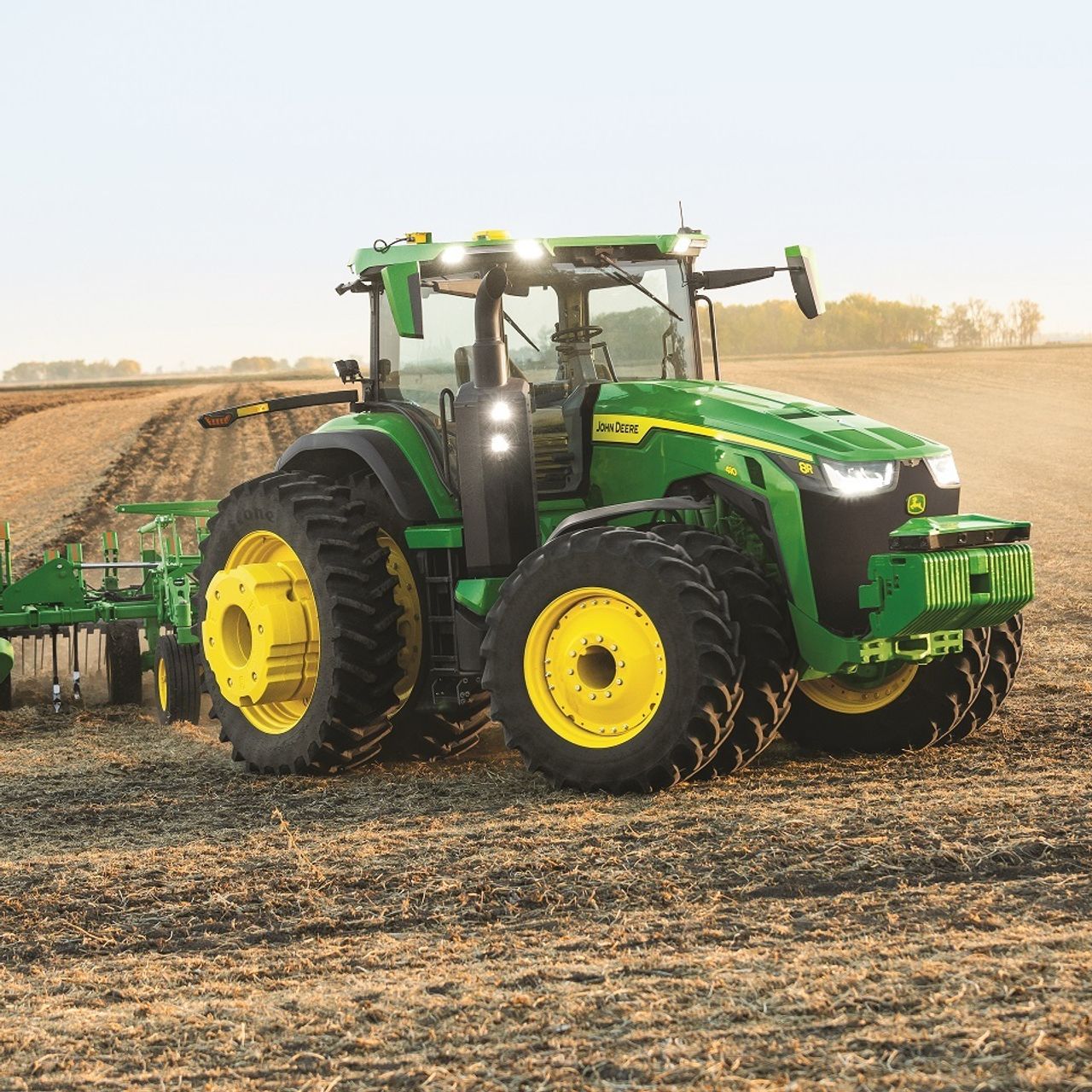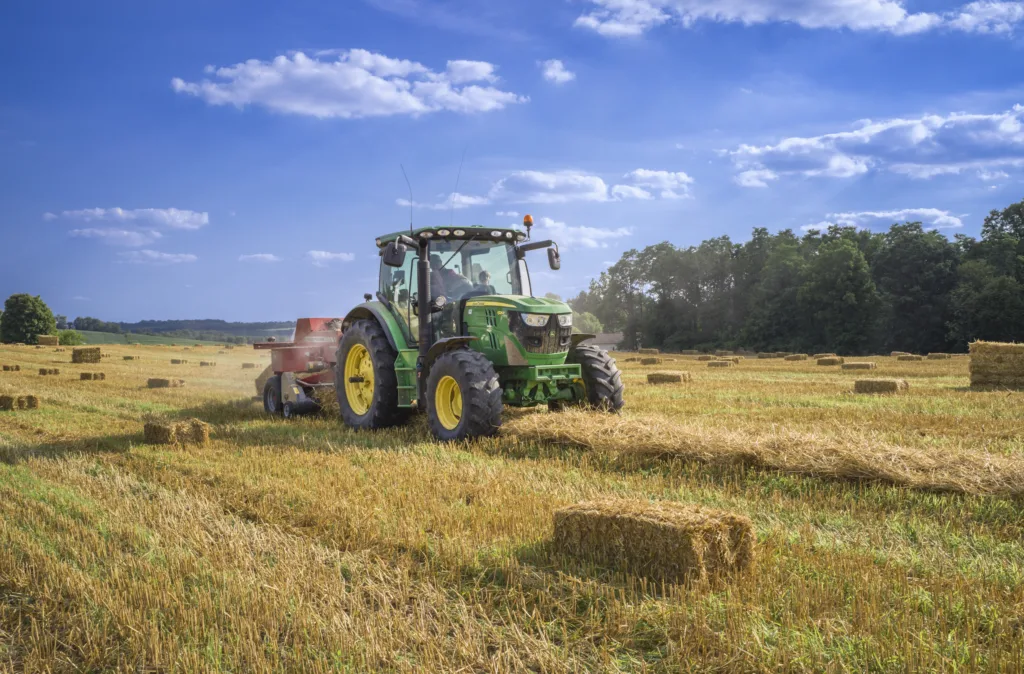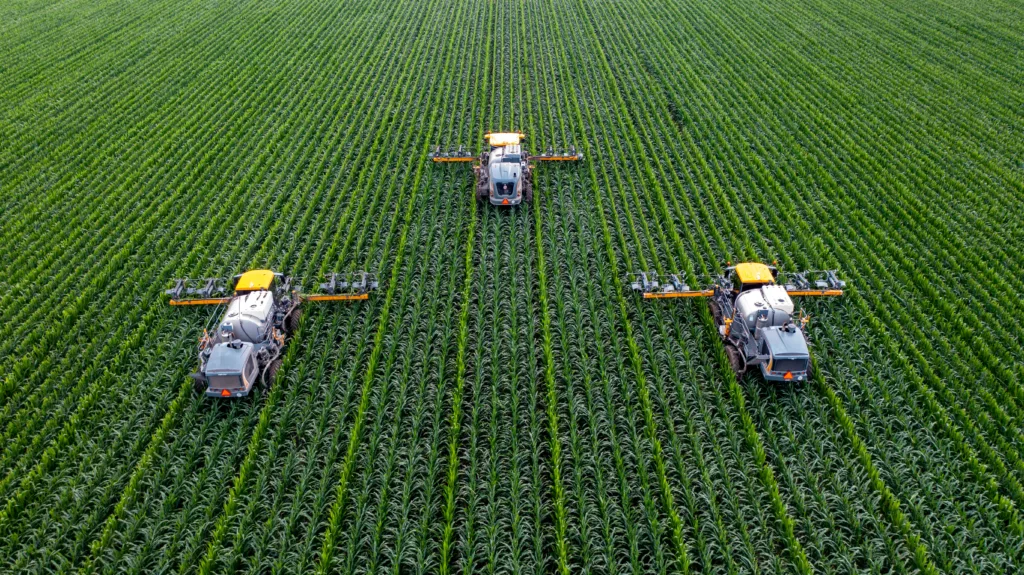Tractors are an essential part of farming, and they come in different sizes and types to cater to various agricultural operations. These machines are valuable investments for farmers, and as such, it is essential to understand how they are registered and titled.
One of the most common questions asked by farmers and tractor owners is whether tractors have titles. Unlike motor vehicles, tractors are not titled, and this is because they have a lower rate of theft and fraud compared to cars and trucks. Moreover, tractors are not used on public roads, bridges, and tunnels regularly, so there is no need for the government to tax the owner to maintain thse networks.
However, just because tractors are not titled does not mean that they are not subject to theft. Tractors are often targeted by thieves since their ownership is hard to prove, and their serial number can be changed. As such, tractor owners should take precautions to secure their machines, such as installing anti-theft devices and keeping them in secure locations.
While tractors are not titled, some states require them to be registered. For instance, farm tractors used as road tractors to mow rights of way or used to move commodities over the highway for hire are required to be registered and titled. In such cases, the owner must provide proof of ownership, such as a bill of sale, to register the tractor.
Additionally, owners of farm trailers and farm semitrailers with a gross weight of 34,000 pounds or less may apply for a Texas title. This is because these trailers are often used on public roads to transport agricultural products, and as such, they are subject to state regulations.
In conclusion, tractors do not have titles, but they may be subject to registration and other regulations, depending on the state and the intended use. As such, tractor owners should familiarize themselves with the laws and regulations in their state to avoid any legal issues and secure their machines from theft.
Do Tractors Require Titles Like Cars?
No, farm tractors do not have titles like cars. This is becase tractors are not classified as motor vehicles by the Department of Motor Vehicles (DMV). Unlike cars, tractors are primarily used on farms and are not driven on public roads, bridges, or tunnels. Additionally, tractors have a lower rate of theft and fraud compared to motor vehicles, which makes it unnecessary for them to be titled or registered. Therefore, tractors are not subject to the same regulations and requirements as motor vehicles, and there is no need for the government to tax their owners to maintain the road networks.

Do Tractors Have Vehicle Identification Numbers (VINs)?
Yes, tractors do have VIN (Vehicle Identification Number) numbers. The VIN serves as a unique identifier for the tractor and is used for registration, insurance, and other purposes. The location of the VIN on a tractor may vary depending on the make and model. For example, for John Deere 100 Series tractors, the VIN is typically located on the frame near the back left wheel, while for Kubota tractors, the VIN can be found on the right side of the front axle. It is important to locate and record the VIN of a tractor for proper identification and documentation.
Does John Deere Offer Titles?
No, John Deere tractors do not have titles. In general, tractors are not issued titles by the manufacturer or government agencies, as they are classified as off-road vehicles. However, tractors can have proof of ownership or registration documents, which vary by state or country. It is important for tractor owners to keep records of their purchase and any upgrades or repairs made, as well as maintaining the tractor’s serial number and other identification marks. This can help prevent theft and aid in recovery efforts if the tractor is stolen.
Does Texas Have a Title for Tractors?
Yes, Texas requires farm tractors that are used as road tractors to mow rights of way or used to move commodities over the highway for hire to be registered and titled. This means that farm tractors that meet thse criteria must have a title in Texas. Additionally, owners of farm trailers and farm semitrailers with a gross weight of 34,000 pounds or less may also apply for a Texas title. It is important to note that these requirements may vary depending on the specific use of the tractor and its weight, so it is recommended to check with the Texas Department of Motor Vehicles for more information.
Proving Ownership of a Tractor
Proving ownership of a tractor requires a legal document that shows you are the rightful owner. The most common documents used for this purpose are the Manufacturer Certificate of Origin (MCO), bill of sale, or invoice. The MCO is typically issued by the manufacturer when the tractor is frst sold, and it contains information such as the model, serial number, and date of manufacture. A bill of sale is a document that transfers ownership from the seller to the buyer and includes details such as the purchase price and date of the transaction. An invoice is a record of the sale that includes the same information as a bill of sale. It is important to note that the exact requirements for proving ownership may vary by state or country, so it is always best to check with your local Department of Motor Vehicles (DMV) or other relevant authority to ensure that you have the proper documentation.
Changing Ownership of a Tractor
To change the ownership of a tractor, you will need to complete the necessary paperwork and submit it to the relevant authorities. The following steps should be taken:
1. Obtain the necessary forms: You will need to obtain a Form RF200 (Change of Ownership Form) from your local motor tax office.
2. Complete the form: Fill out the form with your personal details, the details of the tractor, and the name and address of the new owner.
3. Gather required documents: You will need to provide the original Registration Certificate (RC) or the Certificate of Roadworthiness (CRW) for the tractor.
4. Submit the paperwork: Take the completed RF200 form and the required documents to your local motor tax office. They will process the change of ownership and issue a new RC for the tractor.
It is important to note that if tere is an outstanding loan on the tractor, the new owner will need to contact the lender to arrange for the transfer of the loan. Additionally, if the tractor is used for commercial purposes, there may be additional requirements for registration and licensing.
Checking if a Tractor Has a Lien
If you are looking to buy a used farm tractor, it is important to ensure that thre are no outstanding liens or debts owed on it. A lien is a legal claim against a property or asset, in this case, a farm tractor, used as collateral for a debt or loan.
The best way to find out if a tractor has a lien on it is to conduct a lien search. In the United States, a lien search can be done under the Universal Commercial Code through the Secretary of State in your state. The process involves searching public records for any liens or encumbrances on the tractor.
To conduct a lien search, you will need the tractor’s identification number or VIN. This number can be found on the tractor’s registration, title, or insurance documents. Once you have the VIN, you can visit the Secretary of State’s website or office and request a lien search. The search will reveal any outstanding liens or debts owed on the tractor, including the amount owed and the name of the creditor.
It is important to note that a lien search may come with a fee, which varies from state to state. However, the fee is a small price to pay for the peace of mind that comes with knowing that the tractor you are buying is free and clear of any outstanding debts or liens.

Locating the Serial Number on a Tractor
The serial number on a tractor can typically be found on an identification tag located in one of two areas. The firt location is under the front right wheel, near the steering column. Alternatively, the identification tag may be located near the back left wheel. The identification tag should have the serial number prominently displayed.
If you are trying to locate the serial number of the engine itself, it can typically be found directly on the engine. This number may be stamped onto the engine block or located on a metal plate attached to the engine. With this information, you will be able to identify the specific make and model of your tractor, which can be useful for obtaining parts, servicing the tractor, or selling it.
Do Lawn Mowers Have Titles?
Lawn mowers are not typically titled as they are not designed for use on public roads. Titles are typically given to vehicles that require registration and are intended to be driven on public highways, such as cars, motorcycles, and trucks. Since lawn mowers are primarily used on private property for landscaping purposes, they are not subject to the same registration and title requirements as other types of vehicles. As a result, most lawn mowers do not come with a title and are not required to have one. However, it’s worth noting that some states may have specific regulations or requirements regarding the registration or titling of certain types of lawn mowers or other landscaping equipment, so it’s important to check with your local DMV or other regulatory agency for more information.
Do Backhoes Have a Title?
Backhoes and other types of heavy equipment, such as excavators, bulldozers, and skid steers, do not have titles like regular vehicles. Instead, these types of equipment are typically registered with the state through the Department of Motor Vehicles (DMV) or the Department of Transportation (DOT). When purchasing a backhoe or other heavy equipment, it’s important to ensure that the seller has the necessary paperwork to prove ownership and that there are no liens or outstanding debts on the equipment. The seller may provide a bill of sale or other documentation to transfer ownership. Additionally, if purchasing from a dealer, they will typically handle the lien search and registration process for you. It’s important to note that regulations may vary by state, so it’s alwys a good idea to check with your local DMV or DOT for specific requirements.
Do Dirt Bikes Come With Titles?
When it coms to dirt bikes or other off-road vehicles, it’s important to note that titles may not always be provided. This is because these types of vehicles are not always required to be registered or licensed for use on public roads. However, that doesn’t mean they can’t be sold or transferred to a new owner. In place of a title, the seller may provide the buyer with an MSO (Manufacturer’s Statement of Origin) or a bill of sale, which serves as proof of ownership. It’s important to note that before purchasing a dirt bike or off-road vehicle, you should always check the VIN to ensure it hasn’t been stolen or involved in any accidents. Additionally, when purchasing a vehicle without a title, it’s recommended to negotiate a lower price since the lack of a title may affect the resale value.
Does a Car Licence Cover a Tractor?
If you have a regular car driving licence (category B), it will entitle you to drive certain types of tractors, but not all of them. Specifically, you will be able to drive agricultural tractors (category F) as long as you are using them for agricultural work on your own land or on land that you rent. However, if you are using the tractor for any oher purpose, such as on public roads or for commercial use, you will need to obtain additional licences or certificates. It is important to note that if you are driving a tractor on public roads, you will also need to ensure that it is properly registered, taxed and insured. If you are unsure about what type of tractor you are entitled to drive with your car licence, it is recommended that you seek advice from your local driving authority.
Do Compact Tractors Require Titles?
Compact tractors are versatile machines that can be used for a variety of tasks, such as landscaping, farming, and construction. When it comes to owning a compact tractor, the question of whether or not it has a title is a common one. The answer, however, is not straightforward.
In general, compact tractors that are used for commercial purposes, such as construction or farming, may have a title. This is beause they are often registered with the state and require a certificate of ownership to operate legally. If you are purchasing a compact tractor for commercial use, it is important to check with your local DMV to see what the requirements are for registration and titling.
On the other hand, if you are purchasing a compact tractor for personal use, such as for mowing your lawn or maintaining your property, it is unlikely that it will come with a title. This is because many states do not require titles for these types of vehicles. However, it is still important to obtain a bill of sale or receipt from the seller to confirm that you are the rightful owner of the tractor.
In summary, whether or not a compact tractor has a title depends on its intended use and local regulations. If you are unsure about whether or not your compact tractor requires a title, it is best to check with your local DMV or consult with a legal professional.

Do Tractors Require License Plates in Texas?
In Texas, farm tractors and implements of husbandry are not required to display license plates when operated on public highways. However, all other machinery type vehicles such as construction equipment, bulldozers, and forklifts are required to display a current registration plate or a “MACHINERY” license plate when operated on public highways. The cost of these plates is $5.00 per year. It’s important to note that while tractors may not require license plates, they are stll subject to certain safety regulations when being operated on public roads to ensure the safety of both the tractor driver and other drivers on the road.
Conclusion
In conclusion, farm tractors do not have titles or registration requirements in most states, as they are not considered motor vehicles that use public roads. However, it is important for owners to keep track of their tractor’s serial number and take necessary precautions to prevent theft. It is also important to note that tractors used as road tractors or for commercial purposes may require registration and titling. Owners of farm trailers and semitrailers may also need to apply for a Texas title if their vehicle meets certain weight requirements. While tractors may not have the same legal requirements as other motor vehicles, it is stll crucial for owners to stay informed and comply with any applicable regulations.
